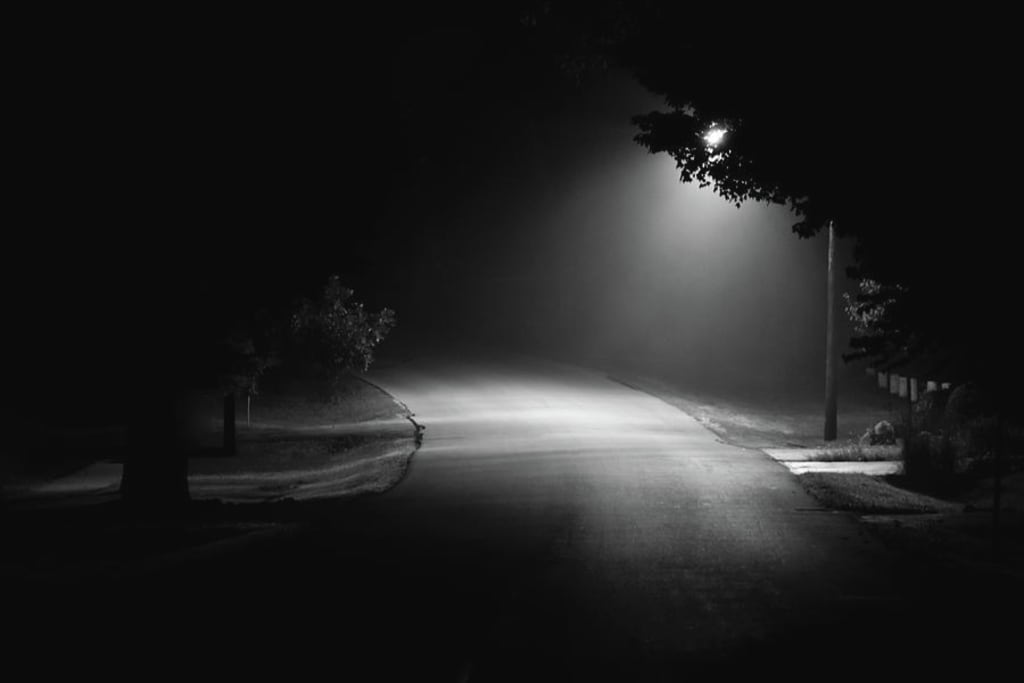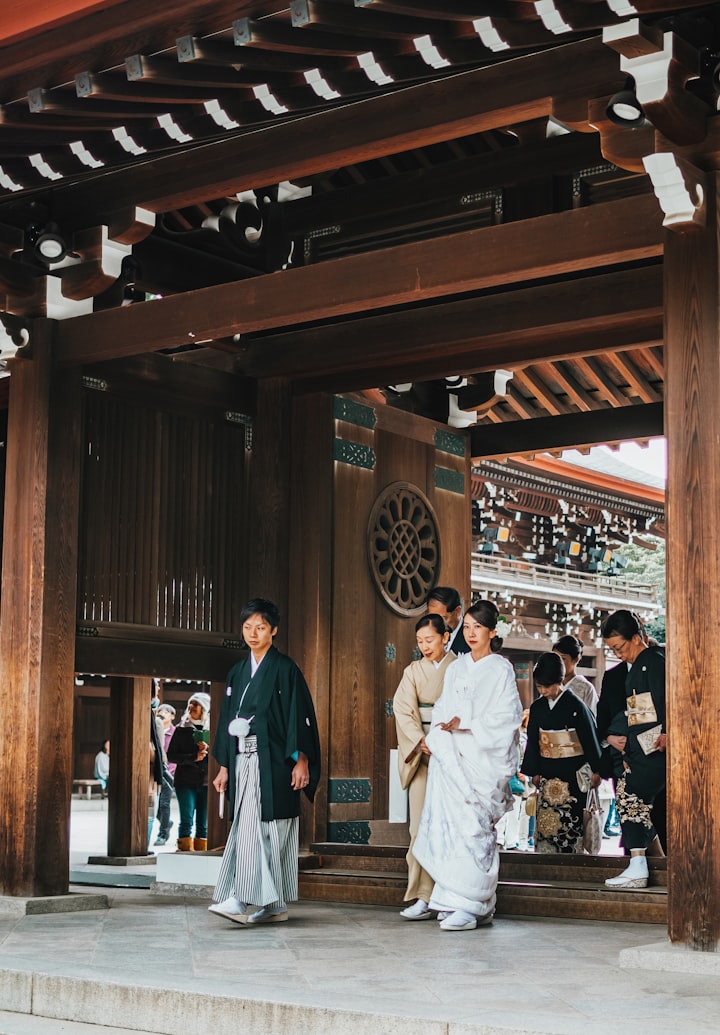What is the "Dark Night of the Soul"?
The Descension Before Ascension

“The “Dark Night of the Soul”” is an expression frequently used to describe a deep spiritual transformation where your focus starts to shift from ego to soul. For many, this is considered the beginning of their ascension to a higher realm of being and becoming closer to the Divine. It is also known as the Descension before the Ascension. Even though the word implies going back, i.e., descending, this really is a process of moving forward in your spiritual development.
The term “Dark Night” was made popular in the 16th century by the Spanish monk and mystic, Saint John of the Cross in his poem, “La Noche Oscura del Alma” which means “Dark Night,” and is about his spiritual journal and hardships he faced in his divine union with God.
St. John of the Cross was born Juan de Yepes y Alvarez on June 24, 1542 and passed away December 14, 1591. He was a Spanish Catholic priest, mystic, and a Carmelite friar of converso origin. He was a major figure in the Counter-Reformation in Spain and is one of the thirty-six Doctors of the Church.
Most likely the poem was written between 1577 and 1599, but that is not certain. It has been thought that the poem was written while Saint John was in prison in Toledo in Spain. But nothing has been proven.
In the Center for Action and Contemplation’sedition of Oneing, “Emancipation,” Mirabai Starr describes Saint John of the Cross’ experience in prison:
“In 1577, when St. John of the Cross was thirty-five years old, he was abducted by his own monastic brothers [who were opposed to his efforts to reform the Carmelite order] and incarcerated for nine months in a monastery in Toledo, Spain. It was there, as he languished, that the caterpillar of his old self dissolved and the butterfly of his authentic being grew its wings.
“His prison cell, a stone room barely large enough for his body, had formerly been a latrine. His single robe rotted from his body in the fetid heat of summer, and in winter he shivered in the rag that remained. Several times a week, the brothers brought him out to be flogged while they enjoyed their midday meal. Otherwise, he sat in the darkness, tracking the stars through the single small window, high up in the wall of his cell.
“Doubt began to infiltrate his psyche and, though he clung to the life-raft of faith, it began to disintegrate in his hands, and he drifted into despair. Like Jonah in the belly of the fierce fish (an analogy John later evoked when he wrote the commentary to “Dark Night of the Soul”), the imprisoned friar found himself suspended in the void. He was unable to move toward any kind of hopeful future, or backward to the innocent idealism that had led to his being swallowed up in this terrible emptiness.
“It was painful enough for him to wonder if God had given up on him, but the true agony descended when he began to find himself giving up on God. At last, he simply ran out of energy and let himself down into the arms of radical unknowingness—which is where the transmutation of the lead of his agony began to unfold into the gold of mystical poetry.
“Like the Bride in the Scripture he loved best—the Song of Songs—John went ‘tracking the sandal-mark’ of his Beloved through the streets and plazas of his ravaged heart and, finding no trace of the One who ‘wounded his soul and set it on fire,’ converted his yearning into sublime love-language. It is the fruit of that alchemy that sustained the poet in his imprisonment and has continued to feed the rest of us for five centuries.”
St. John never actually titled the poem on which he wrote two book length commentaries: Ascent of Mount Carmel (Subida del Monte Carmelo) and The “Dark Night” (Noche Oscura) of which the later one gives rise to the term “Dark Night”. The poem narrates the journey of the soul to mystical and Divine union with God. The journey is called the “Dark Night” in part because darkness represents the fact that the destination, God, is unknowable, as in the 14th century, mystical classic The Cloud of Unknowing.
Both pieces are derived from the works of Pseudo-Dionysius, the Areopagite, in the sixth century. The path to God, the Divine, is unknowable.
In an obscure night
Fevered with love's anxiety
(O hapless, happy plight!)
I went, none seeing me
Forth from my house, where all things quiet be
At the beginning of the treatise “Dark Night”, St. John wrote, "In this first verse, the soul tells the mode and manner in which it departs, as to its affection, from itself and from all things, dying through a true mortification to all of them and to itself, to arrive at a sweet and delicious life with God."
Although, the phrase "Dark Night of the Soul" might seem to refer to the difficulties and trials of life in general, it does not. It is so much more than this.
There are two experiences the soul goes through to clear and cleanse itself on the path to Divine union. The first is the sensory part of the soul; the second is the spiritual portion. Such purging comprises the first three steps of the mystical journey, followed by illumination and the finally, union with the Divine.
There are several steps in this “Dark Night”, which are related in successive stanzas of the poem. The thesis of the poem is the joyful experience of being guided to God. The only light in this “Dark Night” is that which burns in the soul. And that is a guide more certain than the mid-day sun: Aquésta me guiaba, más cierto que la luz del mediodía. This light leads the soul engaged in the mystical journey to Divine union.
During your “Dark Night”, you may experience feelings of depression, loss, and loneliness. You may feel as if your life is meaningless and hollow. And you may have a strong urge to be alone and may lose interest in former activities. This is very normal.
Unfortunately, if you are not aware of the “Dark Night”, it may also feel like clinical depression because so many of the symptoms are the same. However, the “Dark Night” and depression are vastly different experiences with vastly difference outcomes.
Most of us are not in sync with our souls which is always trying to expand and connect with the divine higher power. Due to social constructs, we are trained to constantly act from “ego” and subsequently suffer greatly from it. The “Dark Night” is about letting the “ego” go; letting it die and replacing it with universal love.
The “Dark Night” is the beginning of the shift in consciousness where we begin to focus on our soul as opposed to our ego. Things that were important to us in the past, become inconsequential once we realize that “ego” no longer works. Traversing the “Dark Night” is basically being in a sort of limbo between the two states of “ego” and “soul consciousness” often leaving you feeling as if you are battling yourself. connecting with the Divine.
As you descend (Descension) into the “Dark Night” (which you must remember is really you moving forward) you will eventually fully connect with your soul and start to ascend (Ascension) toward union with the Divine. Basically, your perceived meaning of life is collapsing as the societally constructed you is being dismantled and you are emerging a new “you.”
This is a beautiful and freeing thing to experience as your ego dies. You no longer derive your sense of identity from your career, your wealth, your relationships, or your life roles. You start to realize “things” do not make you happy, so you lose your desire in acquiring them. The “conceptual framework” that once gave your life meaning collapses.
You must touch the darkness before you touch the light.
This can result in an existential crisis and loss of identity which causes the “Dark Night”. It can be traumatic at worst, disorienting at best.
If you are experiencing the “Dark Night” but do not know what it is, it can be extremely frightening and it is easy to assume you are suffering from clinical depression since the two are quite similar. Some of the shared symptoms between the “Dark Night” and “depression” are:
• Feelings that life is breaking down.
• Confusion
• You feel lost, meaningless, empty, and lonely.
• You do not derive joy from what used to make you feel happy.
• You might cry uncontrollably.
• Random emotions might surface.
• Memories and childhood events might surface for you to deal with.
So, what is the difference between the “Dark Night of the Soul” and a Clinical Depression?
Most importantly, with depression, there is no spiritual evolution or growth component. This means that when you recover from your psychological depression, you might have a healthier mind, but you are still identified with your mind and your ego. You are just a healthier version of yourself.
However, “Dark Night of the Soul” results in a total shift of identity, whereas depression does not. A person who gets through the “Dark Night” no longer identifies with their ego. Keep in mind, you may go through the “Dark Night” several times before the lessons are learned and the ego is finally surrendered.
The butterfly and the caterpillar mentioned above are a great analogy to the process. Recovering from a psychological depression results in you being a stronger and healthier caterpillar, but in the end, you are still a caterpillar.
In contrast, going through the “Dark Night” you are basically hiding in your cocoon in the darkness while your metamorphosis happens. The caterpillar must break down and regroup before it comes out a butterfly. This does not happen in clinical depression.
As Yong Kung Chan of the Nerdy Creator stated:
“Before I went through my “Dark Night”, my identity was shaped by my career. I jumped from being an auditor to an accountant then to an animator, trying to find my identity. Once I no longer want to be an animator, I became depressed and lost my sense of self. If I am not my career, then who am I?
It is only through my “Dark Night” that I am awakened and realized that I am not what I do. My whole identity shifted, and I became more in touch with my spirit and my purpose. What is amazing is that previously I hardly read any books on spirituality and have no interest in the topic. But once I have had an identity shift, suddenly I can understand all the books about spirituality with ease.”
So how do you get through your “Dark Night”?
Do not Be Afraid of It
The “Dark Night” is a process initiated by the soul and is not something to “fix.” The soul continually strives toward growth and expansion, and you will be pulled toward a direction of love, joy, and peace because your soul knows you are ready.
Your soul will bring so much energy to this path that you will be unable to resist. Just surrender and follow the guidance of your soul or the emotional pain can be unbearable. You will feel like your mind is spinning and you are in 24/7 intense psychotherapy where old memories are being brought to the surface and old hurts and pains will be addressed and healed. You will be forced to let go of your past socially constructed identity. Remind yourself that the “Dark Night” is a blessing.
It can be scary and miserable because everything seems to be falling apart and your emotions feel out of control. But if you are patient with yourself and try to understand the “Dark Night of the Soul”, you will know that this fear comes from the ego.
Try not to fall into “victim mode” as it will be easy to blame and resent others for your circumstances and especially all the memories that are being brought up. The ego wants to avoid pain and will try to assign blame to find relief. You need to let any sort of “victim” mentality go.
Understand that it is time for this pain to be released which is why your soul has started this process. You are growing and moving forward even though you are “descending”, and you feel awful and miserable from the ego’s perspective.
Give Yourself Lots of “Alone” Time
Do not hesitate to give yourself alone time. I found during my “Dark Night” I just could not bear loud or jarring noises. I listened to a lot of music, especially music with meaningful lyrics, avoided television, news shows, and loud noises. I try to keep calm and peaceful. You may find yourself losing interest in interacting with other people.
Just Trust It
How long does the “Dark Night” last? It depends on each soul and each individual person. It could take weeks, months, or even years. Mine has taken seven months. This spiritual experience is usually temporary, but for some it may endure for a long time.
The "Dark Night" of St. Paul of the Cross (not to be confused with St. John of the Cross) in the 18th century endured 45 years, from which he ultimately recovered.
The “Dark Night” of St. Teresa of Calcutta, endured from 1948 until her death in 1997 according to her records.
“Dark Night” is not something that is a one size fits all. Some people go through it faster than others because they are very in tune with their soul, while others might take a long time because they have a lot to let go of.
And it depends on how much freedom you give your soul to allow the process to happen. You need to allow, surrender, and let the soul take over. The key to ending the “Dark Night” is trust. The end will come when the time is right.
Also keep in mind the process is not linear. You do not gradually get better during the “Dark Night”. You go through the “Descension” until suddenly you experience “Transformation.”
Trust the process and do not interfere with it. Allow your soul to bring you insights and new purpose to your life.
Emergence
When the transformation is complete, you will emerge with a new identity. No, you are not going to change your name and identity, but you will be quite different from your old self. You can no longer live like a caterpillar; you will be a butterfly. You may change your career, friendships, and lifestyle. You will have a new purpose to your life.
Your world after the “Dark Night of the Soul” is going to be flipped upside down and dismantled. Everything will be wiped clean. Your friends and family may not understand you. That is okay. There is no need to explain, argue, or try to get them to understand. They will get used to the new you, or they will leave you alone. Do not be afraid to remove toxic people from your life.
It May Happen Again
You will come to a point after your “Dark Night” where the soul and ego (what is left of it) can co-exist. The ego will know it has lost power, but if there is anything for the ego to hold onto, it will do so, and it will be fine for now. That is until the soul wants further expansion and growth. If the ego refuses to let go and grow, the next “Dark Night” will come. But you will recognize it.
The key point to take out of this, is you will get through this experience called “Dark Night of the Soul”, and you will be better and closer to Divine Union which is what we are all striving toward.
- Julie O'Hara 2023
Thank you for reading my poem or article. Please feel free to subscribe to see more content and if you are moved to, please consider tipping. In addition, my books can be found at https: Julie O'Hara Bookshop
About the Creator
Julie O'Hara - Author, Poet and Spiritual Warrior
Thank you for reading my work. Feel free to contact me with your thoughts or if you want to chat. [email protected]






Comments
There are no comments for this story
Be the first to respond and start the conversation.